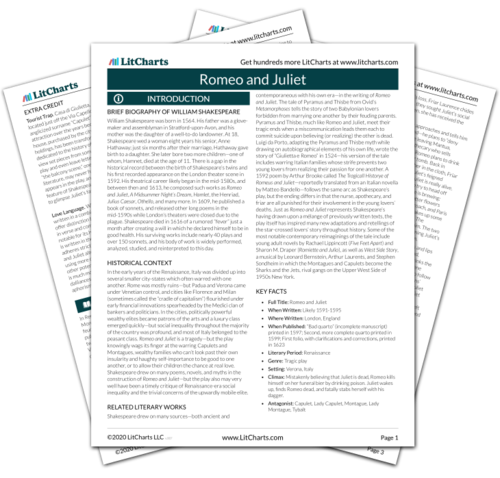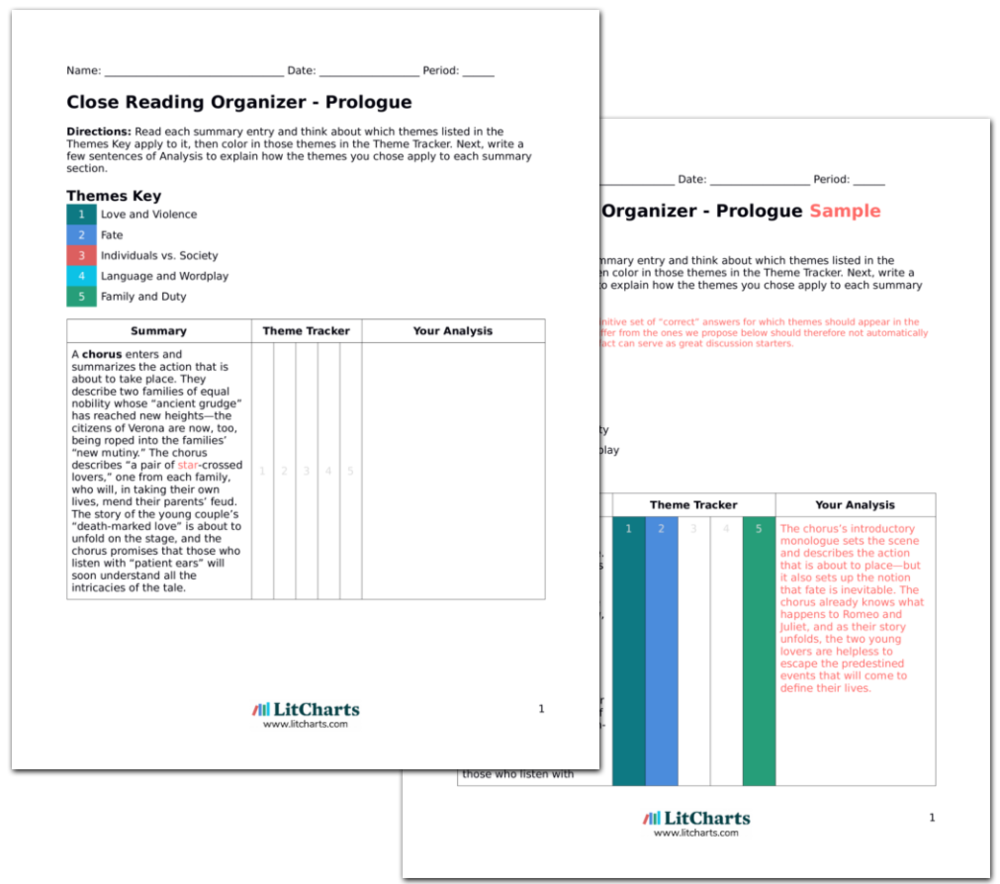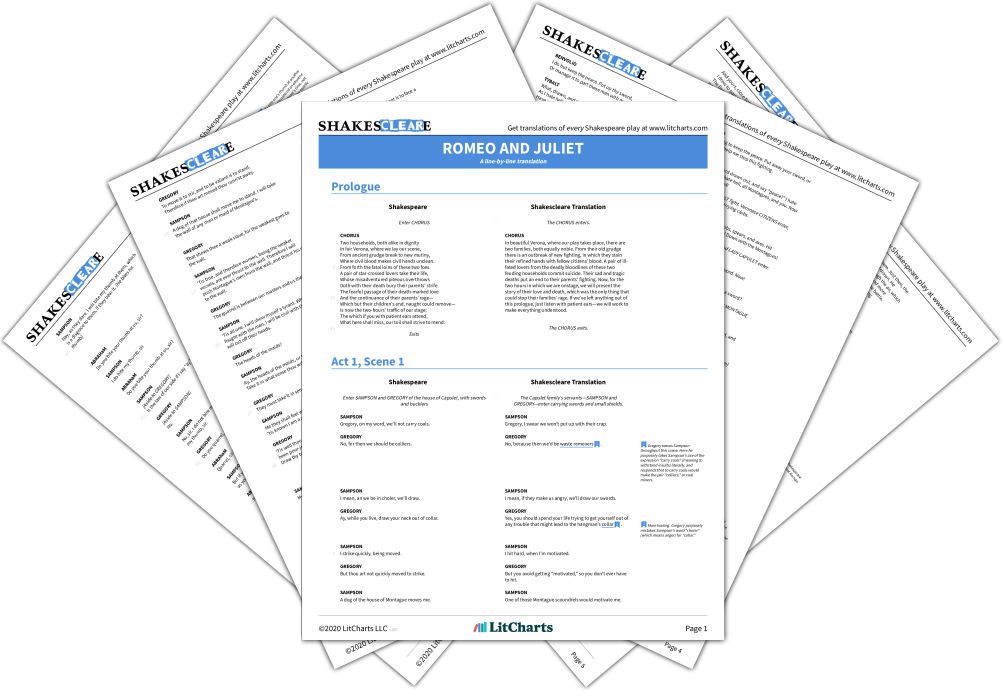![]()
LitCharts assigns a color and icon to each theme in Romeo and Juliet, which you can use to track the themes throughout the work.
![]()
![]()
![]()
![]()
![]()
Capulet and Paris enter with a servant, Peter . Capulet is telling Paris that he and Montague have sworn to a peace agreement and expresses hope that they will be able to keep to its terms. Paris says he, too, hopes the men can stop living “at odds.” He asks Capulet if the man has thought any more about his “suit”—Paris wants to marry Capulet’s daughter, Juliet . Capulet, however, believes that 13-year-old Juliet is too young to be a bride. He tells Paris that the young man can only marry Juliet if she consents to marry him. Capulet invites Paris to a feast at his house that evening. Many beautiful young women will be there—if, after meeting them all, Paris still wants Juliet, Capulet will consider letting them marry.
Though Capulet can barely keep an uneasy peace in his own life, he wants to interfere in the social and romantic life of his only daughter, Juliet. Though Capulet is initially hesitant to marry Juliet off to Paris right away, as the play progresses, his desire to use Paris for his own family’s social advancement will steadily intensify.
Active Themes![]()
![]()
Capulet gives Peter a list, telling him to go around Verona and invite everyone on it to the feast. After Capulet and Paris exit, Peter laments that he cannot read. Benvolio and Romeo enter, still talking about Romeo’s broken heart. Benvolio urges Romeo to fall in love with a new girl, but Romeo insists he’s too far gone—he is “shut up in [the] prison” of his love. Peter approaches the men and asks if either of them can read. After joking with the servant for a moment, Romeo offers to read the letter for him. He reads off a series of names and asks where the “fair assembly” is headed. Peter admits that his master is “the great rich Capulet,” and, not knowing who Romeo and Benvolio are, invites them to the feast excitedly. He thanks them for helping with the letter, then leaves.
This scene is emblematic of the play’s concern with individuals versus society. Peter, an illiterate servingman, is put-upon by his master and ordered to carry out tasks with which he struggles greatly. As Romeo enters, lamenting his broken heart, he fails to realize that there are other members of his society with far greater problems than his. Romeo’s violent descriptions of the feelings of being in love tie in with the play’s suggestion that sometimes, the only way to talk about the strong feelings love engenders is to do so in violent terms.
Active Themes![]()
![]()
Benvolio tells Romeo that the woman Romeo loves, Rosaline , will be at the party. He urges Romeo to go to the party, but not to confront Rosaline—he wants Romeo to find another girl there. Romeo accuses Benvolio of speaking blasphemy by suggesting that any woman could be more beautiful than Rosaline. “The all-seeing sun ,” he declares, has never shone on anyone more perfect. Benvolio insists Romeo will be able to find someone new who shines more brightly than even Rosaline. Romeo begrudgingly agrees to go along.
Even though Romeo believes he’ll never love again, Benvolio is determined to help his friend get out of his lovesick depression. As the wheels begin to turn, it does start to seem as if fate has had a hand in Romeo and Benvolio securing an unlikely invitation to the Capulet feast.
Active Themes![]()
![]()

“Would not have made it through AP Literature without the printable PDFs. They're like having in-class notes for every discussion!”
Get the Teacher Edition
“This is absolutely THE best teacher resource I have ever purchased. My students love how organized the handouts are and enjoy tracking the themes as a class.”
Romeo and Juliet in Plain English
“Every teacher of literature should use these translations. They completely demystify Shakespeare. Students love them!”
Copyright © 2024 All Rights Reserved Save time. Stress less.AI Tools for on-demand study help and teaching prep.
 Quote explanations, with page numbers, for over 44,324 quotes.
Quote explanations, with page numbers, for over 44,324 quotes. PDF downloads of all 2,003 LitCharts guides.
PDF downloads of all 2,003 LitCharts guides. Expert analysis to take your reading to the next level.
Expert analysis to take your reading to the next level. Advanced search to help you find exactly what you're looking for.
Advanced search to help you find exactly what you're looking for.
 Expert analysis to take your reading to the next level.
Expert analysis to take your reading to the next level. Advanced search to help you find exactly what you're looking for.
Advanced search to help you find exactly what you're looking for.